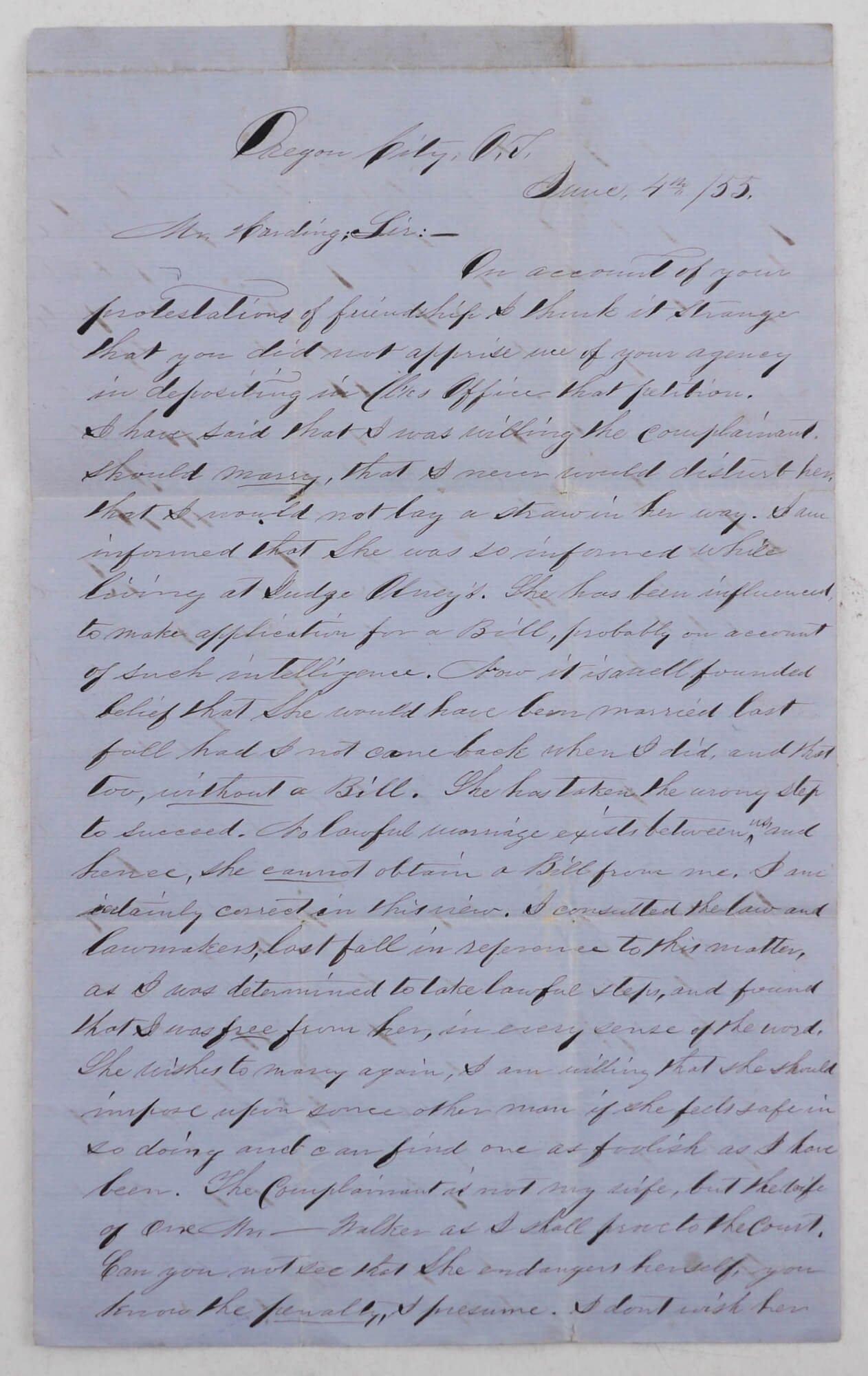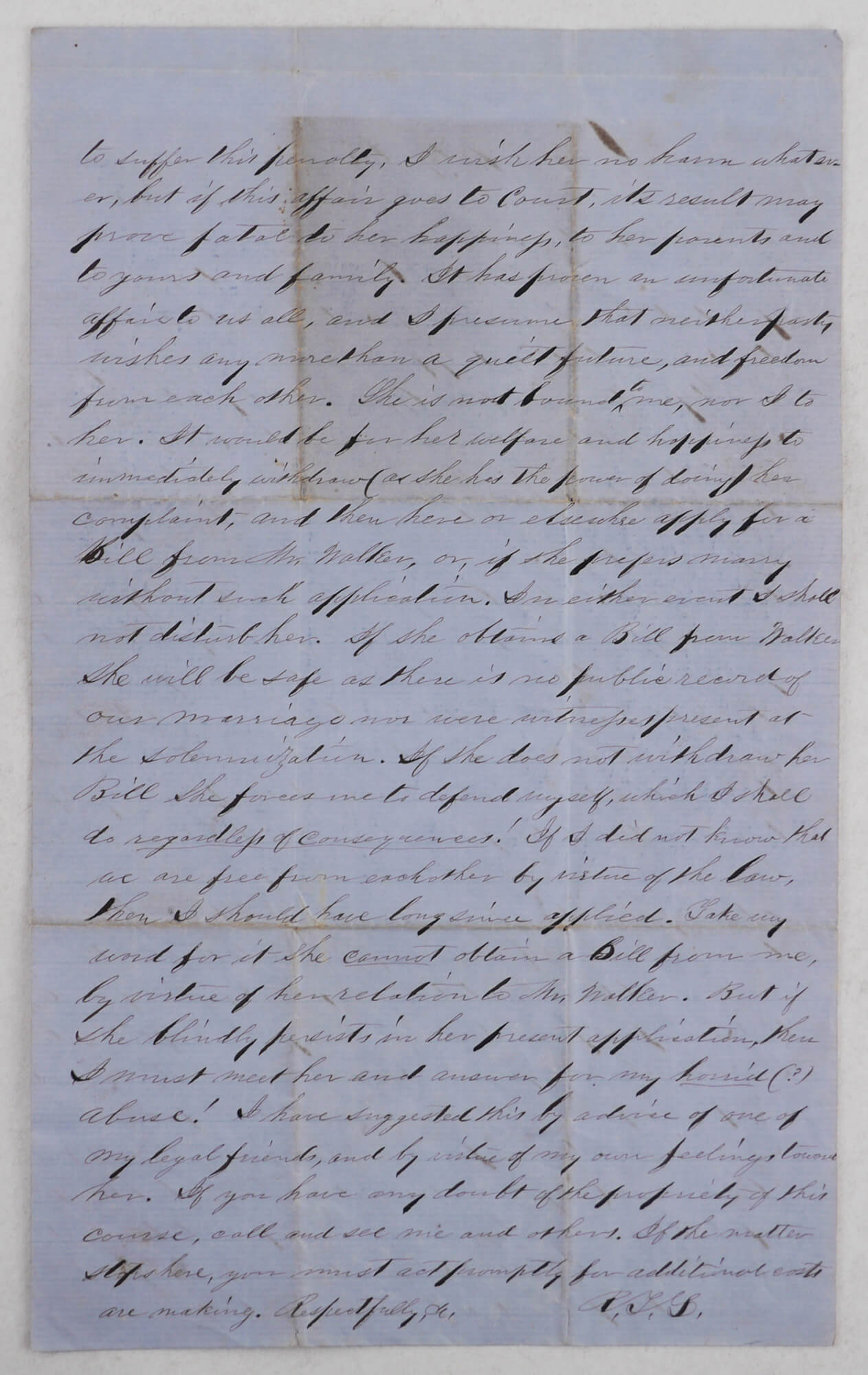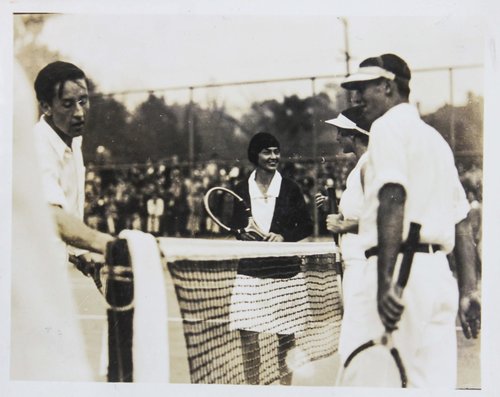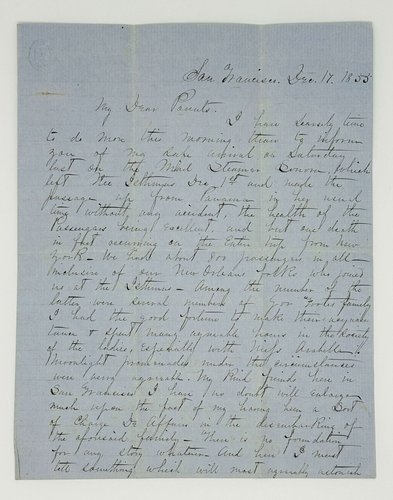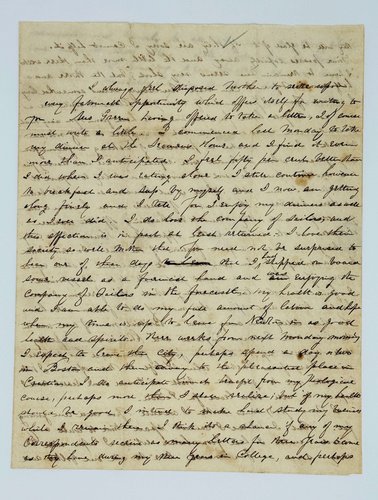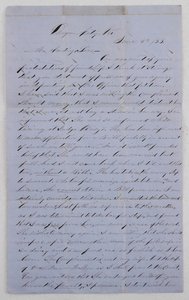
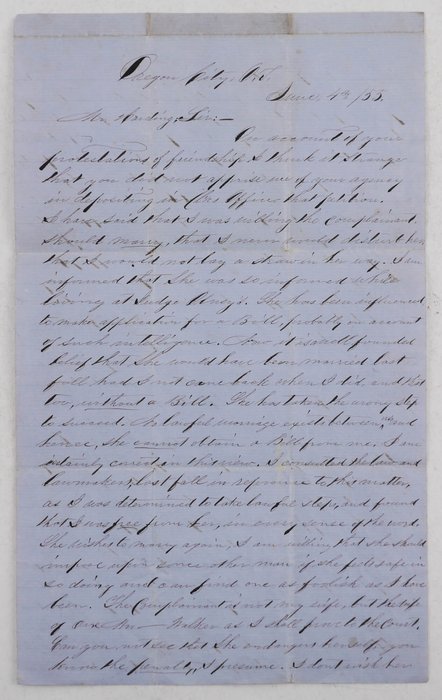
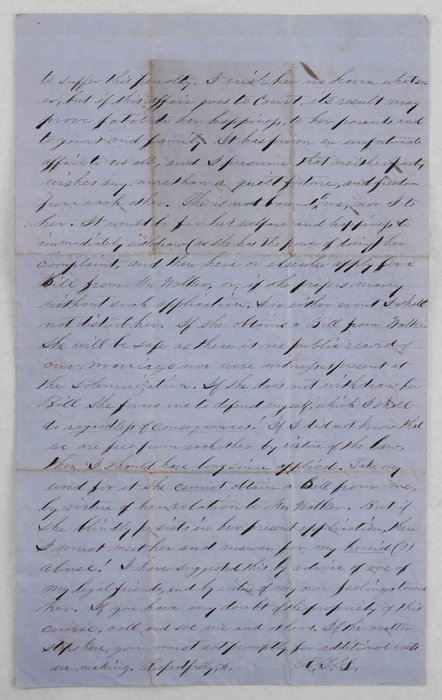
#M88
1855
Folio (ca. 32x19,5 cm or 12 ¾ x 7 ¾ in). 2 pp. Brown ink on blueish laid paper. Fold marks, paper slightly age-toned, but overall a very good letter written in a legible hand.
Interesting original manuscript letter providing an insight into an early legal dispute over the confirmation of what looks like a common law marriage in the Oregon Territory. Written by a resident of Oregon City who concealed his identity under the letters “R.J.G.,” the letter is addressed to “Mr. Harding” – most likely, Benjamin Franklin Harding (1823-1899), a notable Oregonian attorney and politician. In 1852, Harding established the “Harding and Grover” law firm in Salem; in 1855-59 served as the Secretary of the Oregon Territory. During the American Civil War, Harding took the office of the US Senator from Oregon (1862-65). In the letter, the author refuses the claim of an unnamed woman to be his alleged wife (apparently, common-law) and declares that he can prove that she is in fact the wife of another man, and that he is going “to defend myself, which I shall do regardless of consequences.” In the beginning of the letter, the author notes that the “claimant” lived “at Judge Olney’s,” who was Cyrus Olney (1815-1870), then the 6th Associate Justice of the Oregon Supreme Court (1853-58). Later Olney served as a delegate to the Oregon Constitutional Convention (1857) and served in the Oregon House of Representatives. Overall, an interesting early original letter regarding legal disputes over the confirmation of common-law marriages in the Oregon Territory.
The text of the letter:
“Mr. Harding, Sir,
On account of your protestations of friendship I think it strange that you did not apprise me of your agency in depositing in […?] Office that petition. I have said that I was willing the complainant should marry, that I never would distrust her, that I would not lay a straw in her way. I am informed that she was so informed while living at Judge Olney’s. She has been influenced to make application for a Bill, probably on account of such intelligence. Now it is a well founded belief that she would have been married last fall had I not come back when I did, and that too, without a Bill. She has taken the wrong step to succeed. No lawful marriage exists between us, and hence she cannot obtain a Bill from me. I am certainly correct in this view. I consulted the law and lawmakers last fall in reference to this matter, as I was determined to take lawful steps, and found that I was free from her, in every sense of the word. She wishes to marry again, I am willing that she should impose upon some other man if she feels safe in so doing and can find one as foolish as I have been. The complainant is not my wife, but the wife of one Mr. Walker as I shall prove to the court. Can you not see that she endangers herself, you know the penalty, I presume. I don’t wish her to suffer this penalty, I wish her no harm whatsoever, but if this affair goes to court, its result may prove fatal to her happiness, to her parents and to yours and family. It has proven an unfortunate affair to us all, and I presume that neither party wishes any more than a quiet future and freedom from each other. She is not bound to me, nor I to her. It would be for her welfare and happiness to immediately withdraw (as she has the power of doing) her complaint, and then here or elsewhere apply for a Bill from Mr. Walker, or if she prefers marry without such application. In either event I shall not disturb her. If she obtains a Bill from Walker, she will be safe as there is no public record of our marriage nor were witnesses present at the solemnization. If she does not withdraw her Bill, she forces me to defend myself, which I shall do regardless of consequences. If I did not know that we are free from each other by virtue of the law, then I should have long since applied. Take my word for it, she cannot obtain a Bill from me, by virtue of her relation to Mr. Walker. But if she blindly persists in her present application, then I must meet her and answer for my horrid (?) abuse! I have suggested this by advice of one of my legal friends, and by virtue of my own feelings toward her. If you have any doubt of the propriety of this course, call and see me and others. If the matter stops here, you must act promptly for additional costs are making. Respectfully, R.J.G.”

